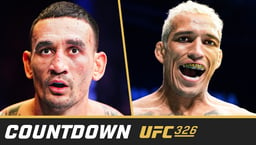
Issue 126
March 2015
The UFC landscape has changed dramatically in the short time since I retired, making it more difficult to “stand out” as a fighter and benefit financially. Fight Pass, Reebok and more than 580 fighters on the roster have collectively contributed to an expansion of the UFC brand. They have also shaped a more complex climate in which to gain significant financial return on your years of training invested in an MMA career.
BRIAN STANN
The World MMA Awards’ host on how fighters can maximize financial opportunities when in the UFC
The UFC is now promoting several events each month, which gives fans a smorgasbord of fighters from which to select their favorites. The same goes for companies (sponsors) looking to invest in brand spokespersons from professional MMA.
Speaking of that, most sponsors are exiting the Octagon because of the exclusive apparel deal recently struck between the UFC and Reebok. All of these factors make it more difficult to become a fan favorite, which for so long, has been the key to generating revenue outside the Octagon.
During my UFC tenure it was considered good money if you could make more than $20,000 in sponsors for a main card fight on PPV – not including monthly payments you could make from year-round sponsorships as part of a-six figure endorsement contract. Those are hard to come by in 2015.
Here are my three top tips on what fighters can be doing to ensure they maximize financial opportunities and make their hard-fought journey in the UFC worth it in the long term.
1. WIN FIGHTS
No surprise here. But to do that you have to put yourself in an environment where new technique is drilled. I could not stand being in the gym and listening to fighters tell guys like Donald Cerrone how lucky he was for having sponsors, winning bonuses and making great money.
Donald has always been winning fights consistently and luck had little to do with it. Winning was a direct result of his training, which in turn was in constant evolution based on his performances and weaknesses that were exposed. When ‘Cowboy’ lost to Jamie Varner at WEC 38 because of takedowns, he began wrestling many times a week with good wrestlers.
He’s one of many fighters who win consistently due to an outstanding work ethic and humble approach to training. Weaknesses don’t fix themselves. Sometimes it takes a fighter to get out of their comfort zone to improve at the pace necessary to compete with the elite for a sustained time.
2. PERSONALITY GOES A LONG WAY
In addition to winning, show your personality. Fighters don’t need to have a gimmick or the charisma of Conor McGregor – although Conor’s gift is certainly fortuitous – but they do need to take advantage of media opportunities.
Fighters generally shy away from doing media during training camps because they’re exhausted, cranky and cutting weight, but this is part of the job ladies and gents. Yes you’ll receive negative as well as positive comments from fans, but criticism is part of being a professional athlete.
Frankie Edgar is a great example of a media-savvy fighter, because he’s a humble, regular guy who’s always gracious with his time for fans, media and sponsors. Companies don’t invest in him just because they can have a small logo on his shorts. They want Frankie to use their products and speak about them because he’s a guy most men can relate to. He’s down to earth and a grafter. Most fans can relate to that.
3. TRAIN SMART
To earn good money you have to train intelligently and stay healthy so you can fight often. The year 2014 will be remembered most for injuries to many key fighters, resulting in the cancelation or delay of many highly-anticipated fights.
Sometimes injuries have more to do with bad luck, but I’ve said this for a while now, athletes in MMA train far too hard. Specifically, we spar too often. Lacing up the gloves and shin guards to fight twice a week is plain stupid and I’m more guilty than most. Shots to the head are cumulative, as is overtraining on your joints. Both take years off your career.
The goal of most people in MMA is to fight as much as they can and make as much money as possible before you have to retire. It isn’t just about showing up healthy for one fight, you must look at your career as a whole and consistently be healthy so you can train, improve and perform. You can’t do this if you’re persistently injured due to unintelligent training.
This year we’ll see fighters that capitalize financially despite the challenging new sponsor landscape and make the hard training and sacrifices endured worth it. The fighters that stay healthy, fight often and realize personality goes a long way in this sport will have the advantage in competing for scarce sponsor dollars, better card placement and more lucrative contracts.
...









